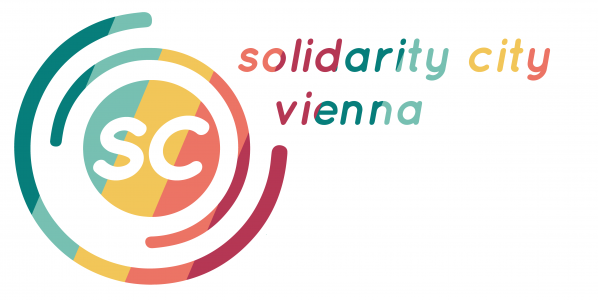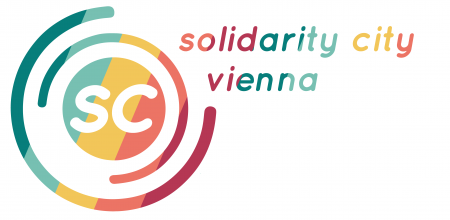In a city often regarded as the capital of classical music, a city rich in culture with renowned museums and an important contemporary arts scene, one must feel excited when approaching such a cultural heritage as a newcomer. Nevertheless, in conversation with Superar’s director Andy, an orchestra director working at Superar, we can understand how difficult it is for newcomers or low-income families, especially kids, to access or feel connected to such a cultural offer. By facilitating the access to a proper music education for kids from vulnerable families and making them feel part of the Viennese cultural scene, Superar’s work represents an important step towards a more inclusive city.
Superar’s history and mission
Superar is a not-for-profit organisation founded in 2009 by the Wiener Konzerthaus, the Vienna Boys’ Choir and Caritas of the Archdiocese of Vienna. “When these three organisations joined their energies, they were just thinking about how to influence society in a positive way, and so they decided to do it with what they can do best and where it is most needed,” Andy told us in a meeting during Superar’s summer break. With many ideas on how to start, Superar’s founders aims to base their project on two pillars: to work with youngsters, promoting musical education where there’s little access; and to do this through group instruction.
Superar’s mission is to fight cultural and spatial exclusion by providing access to a good musical education in less central areas of the city: Vienna has a big and diversified cultural landscape that concentrates on the city centre and tends to exclude other areas of the city. Therefore, Superar brings an attractive and inclusive offer to those less central places and fosters active participation in the city’s cultural life.
The initial project was called “Vorlaut”, and consisted of working within the school system with complete classes of 25 children each, four times a week. Children in the program could learn about music regardless of visible talent, personal interest or socioeconomic background. With this program, Superar was considered as an additional subject to follow at school, like history or science. But the work of Superar was, and still is, more than just about music: “Working with youngsters, our aim is not only to pass musical knowledge but to teach important principles and values for kids’ education such as consistency, hard work, cooperation, a set of important soft skills for their personal growth”, said Andy.
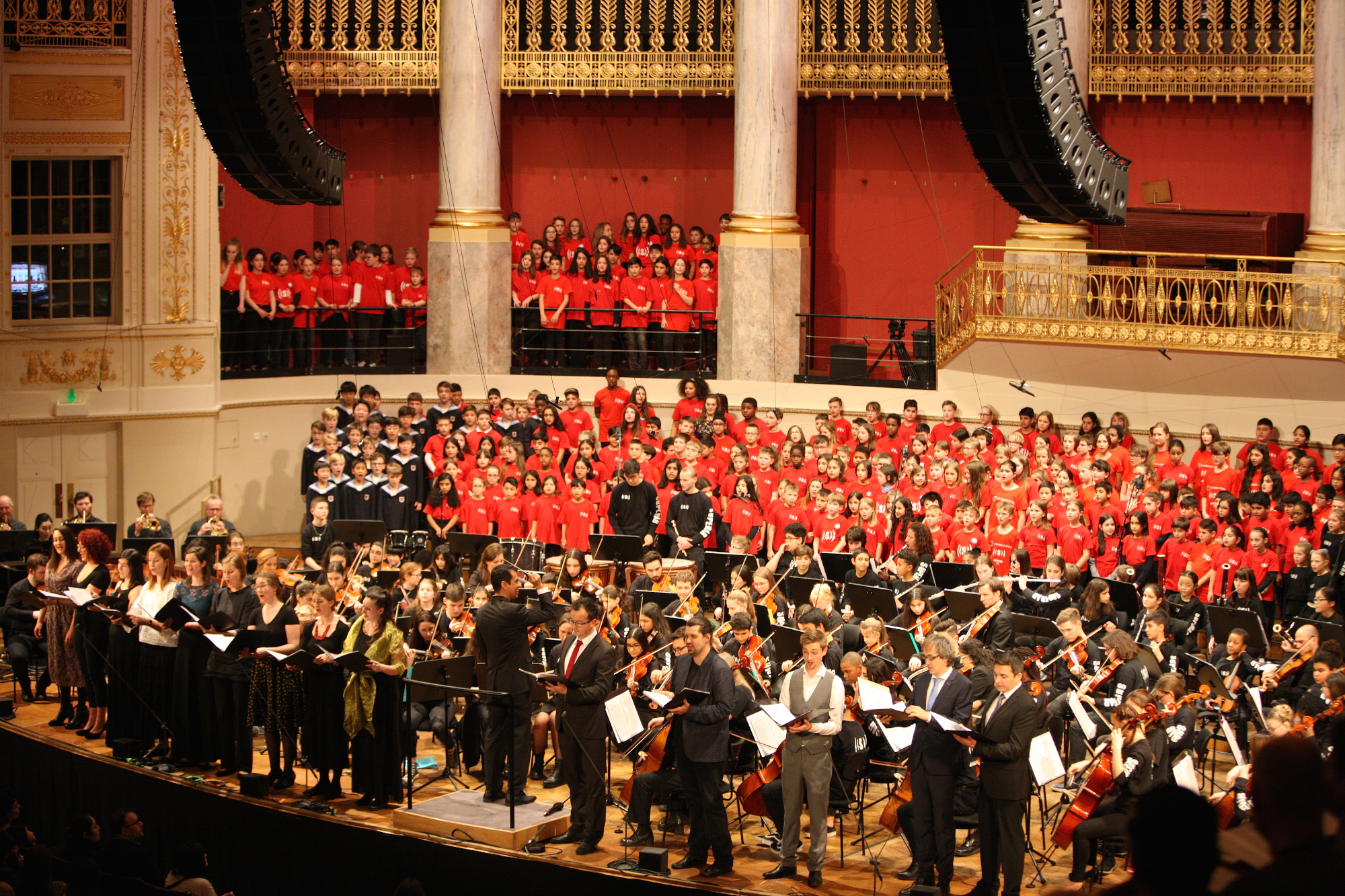
In Austria every elementary school teacher teaches all the subjects of their class, including music. Superar, on the other hand, works with specialists who make their work more valuable when compared to regular primary school music classes. With Superar, kids have their special music teacher at school in an intense four-hour a week course where they develop musical, vocal and social skills. Superar works mainly with elementary school kids but also with middle-high school students and teenagers in its afternoon courses. All of this, plus concert shows and performances, contributes to a more complete and rich education for kids who would be otherwise excluded of this cultural activity due to the area they live in.
The work of Superar focuses on areas in Vienna with little access or resources for high quality music education. Drawing from his own experience, Andy strongly supports free access to music education: “Without the access and support I grew up with, I wouldn’t have the chance to have a musical career. I was fortunate enough to enjoy the unconditional support of my family and teachers, who helped me overcome barriers and eventually find a way to a high-quality, free of charge music education program at the National Conservatory in Lima.”
It is worth mentioning, that since its beginning, Superar was sponsored by the Hilti foundation, by ErsteBank and the City of Vienna as partners of Superar’s objectives. Also, thanks to private donations, it was possible for the organisation increase its work soon after its establishment. A major impact of Superar is that it managed to go international: due to solid financing from the beginning, Superar now works in several European countries.
Superar’s role in social inclusion
What is important for Superar is that through music and the chance they are giving to kids to develop their potential, they are removing financial barriers to a musical education. “All Superar projects are totally free for the families. We don’t ask if families have money or not, money is not part of our “equation”. The concept of going beyond barriers and differences is at the heart of Superar’s concept”. The name of Superar is derived from the Latin word superare, “to overcome”.
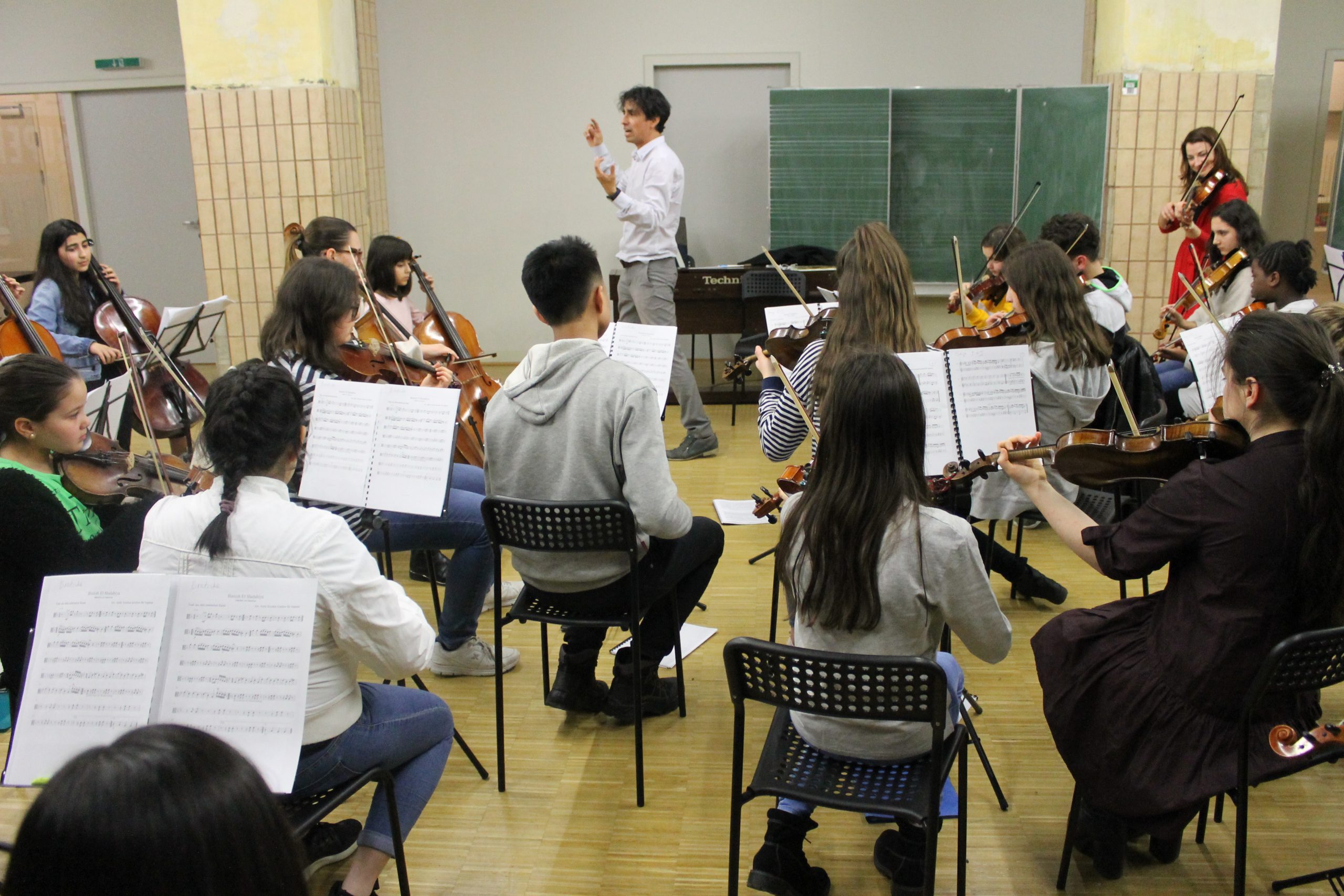
By removing financial barriers, Superar also promotes inclusion and cultural exchange: they work with kids coming from different cultural backgrounds not focusing on a specific social class or nationality. Its afternoon courses are open to every kid from all of Vienna: some may even come from Wiener Neustadt (a small town close to Vienna) and some come from a few blocks from Superar’s headquarters, the Brotfabrik in the 10th district.
Kids love Superar’s classes as they learn with professionals who are fond of their job, they enjoy the spaces and all the opportunities they have there, like getting to know peers of the same age but coming from a different district or with a different nationality. Within this cultural exchange and through music, kids get to know different realities, as with Superar they learn not only classical music but also traditional music of different nationalities that exist in Vienna. In this sense, teachers also reflect the diverse demography of Vienna: “Out of the eight teachers of our orchestra, some come from European countries like Hungary, Poland, Spain and Ukraine, and others even from as far as Iran, Venezuela and Chile.” This kind of diversity makes kids feel more represented. They recognise themselves in this diversity as they also speak, in addition to German, many other languages such as Turkish, Serbo-Croatian, and some middle-eastern languages.
Superar’s impact
What about Superar’s impact on society? Before sharing data or stories with us, Andy warned us of the risk of relying too much on numbers: “Numbers can lead to different interpretations, the outreach is just a number that could be realised in many possible ways, what we do is important beyond numbers”.
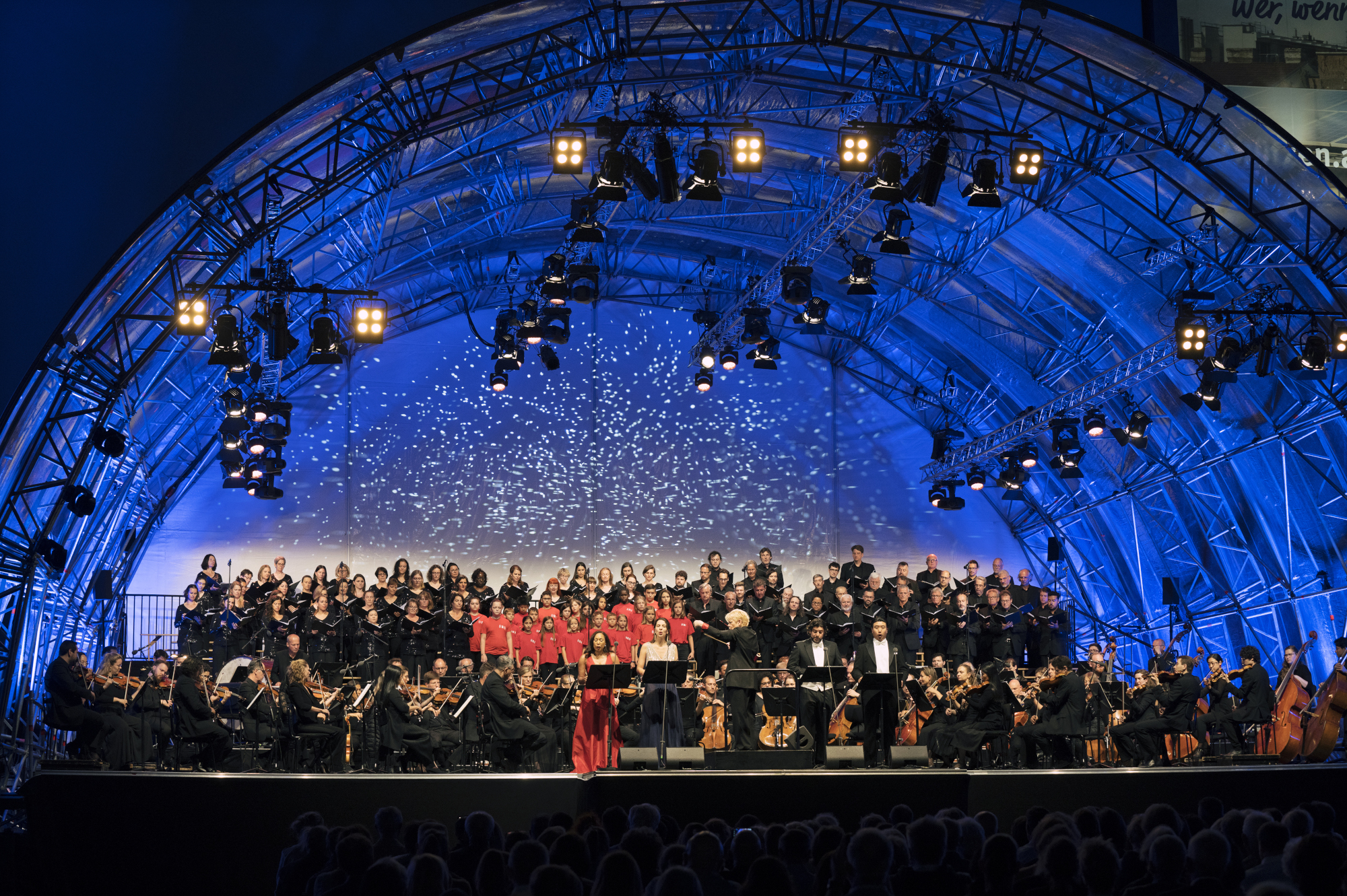
Nevertheless, it is worth saying that Superar has worked in 2020-2021 with approximately 3100 children internationally, of which about 1800 are in Vienna. Each kid receives three to eight hours of music training per week. In Superar’s view what is important beyond numbers is the fact that Superar works in places where there’s a lack of educational offer, trying to engage with kids in the long term, therefore, engaging and training them for many years.
Beyond this, Superar sees an impact on the lives of the families they work with. For example, some parents working in Vienna for more than twenty years go to the Konzerthaus for the first time thanks to their children’s performances. Or in another case, immigrant families speaking two languages at home find themselves feeling proud of being bilingual for the first time as their kids are the experts of a foreign language music tradition during Superar sessions.
Another visible change is the way some families evaluate music after getting to know the work of Superar: “They used to tell their kids to have good grades in mathematics, history, German, perhaps not focusing so much on arts and music; but with time their kids have showed them the value and the importance of a music education beyond good or bad grades”. They have met families that are thought to be open and inclusive but that in fact have never been in contact with specific segments of society. Only thanks to Superar have they managed to connect with families living in completely different districts, having a different cultural background, and so they got to know a greater richness in the cultural make-up of the city.
It is important to underline the fact that these little changes are really hard to share and evaluate with numbers, but they exist and they make a difference.
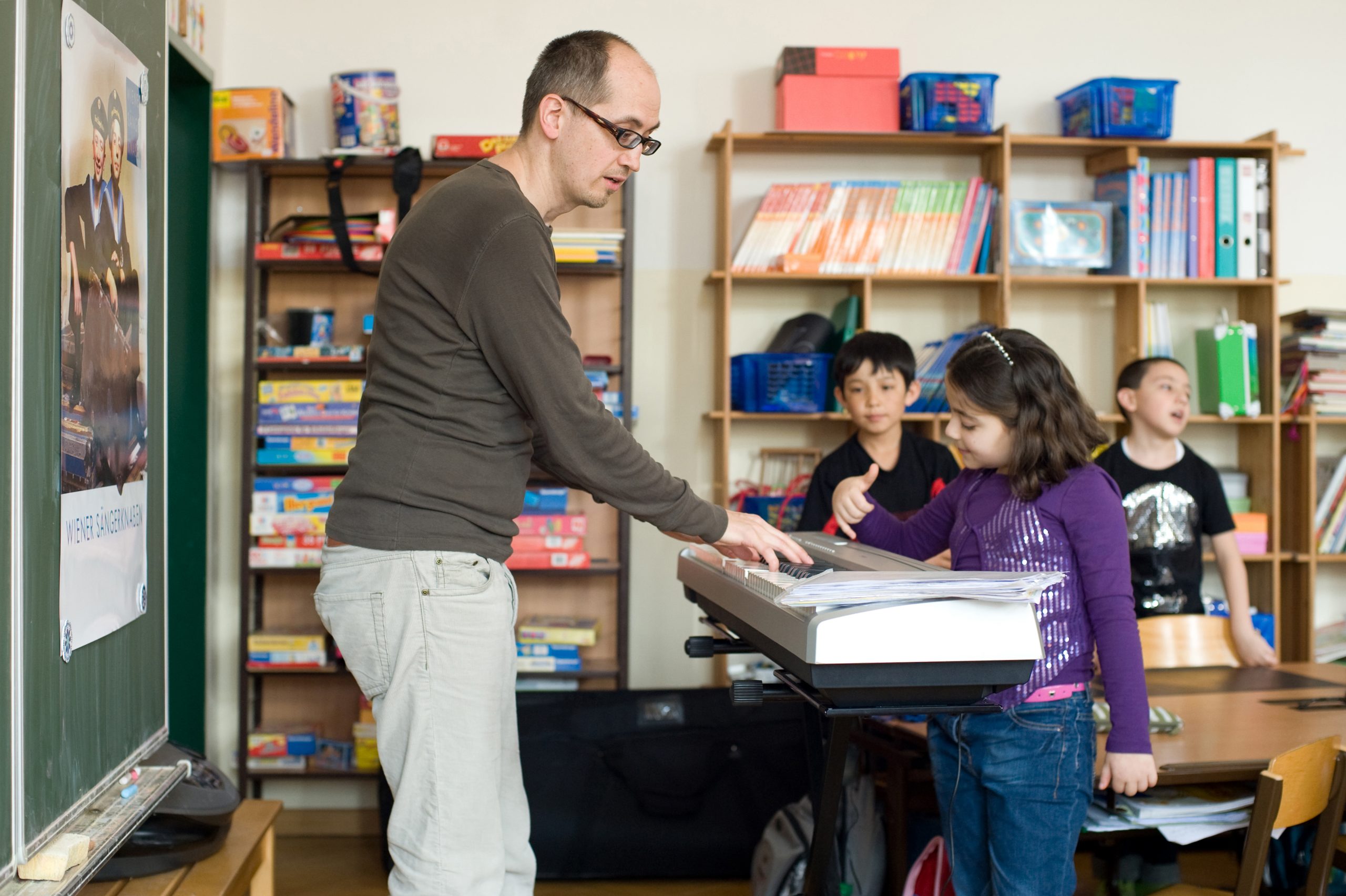
Working in the Brotfabrik
Superar’s headquarters are in the Kulturhaus Brotfabrik, a large, impressive, old industrial building made of brick, the former ANKER bread factory. Nowadays, the Kulturhaus Brotfabrik hosts many studios, galleries and showrooms acting as a linkage between these different projects and the surrounding area, Vienna’s 10th district Favoriten. Such a location is important and very valuable for Superar’s work, creating moments of exchange with other projects like Stand129, a project run by the Viennese Caritas that offers “Art for everyone” in the Viktor-Adler-Markt. During the summer, Superar plays for Stand 129 and other social initiatives, helping them in their events. A synergy is thus created between different initiatives operating in the Kulturhaus Brotfabrik. Superar also has a special relationship with a school for social jobs in the Kulturhaus Brotfabrik and the Ute Bock Haus, an association offering homeless refugees a registration address, training, and advising hundreds of people on asylum procedures.
The work of the Kulturhaus Brotfabrik and the presence of their many social activities in Favoriten makes the place very attractive for people coming in contact with Superar’s work. In this regard, Andy recounts the episode when at the Leopold Museum he was approached by a donor of the museum that just saw one of his classes performing there and asked him where the kids were from. “She couldn’t believe the kids were all Viennese and practising in Favoriten. I invited her to come to the Kulturhaus Brotfabrik and she loved it, confirming the power of the music and of the space we’re based in”.
Highlights
Before closing our conversation, when ask about the highlights of his work, Andy shared with us a couple of memorable moments for Superar kids.
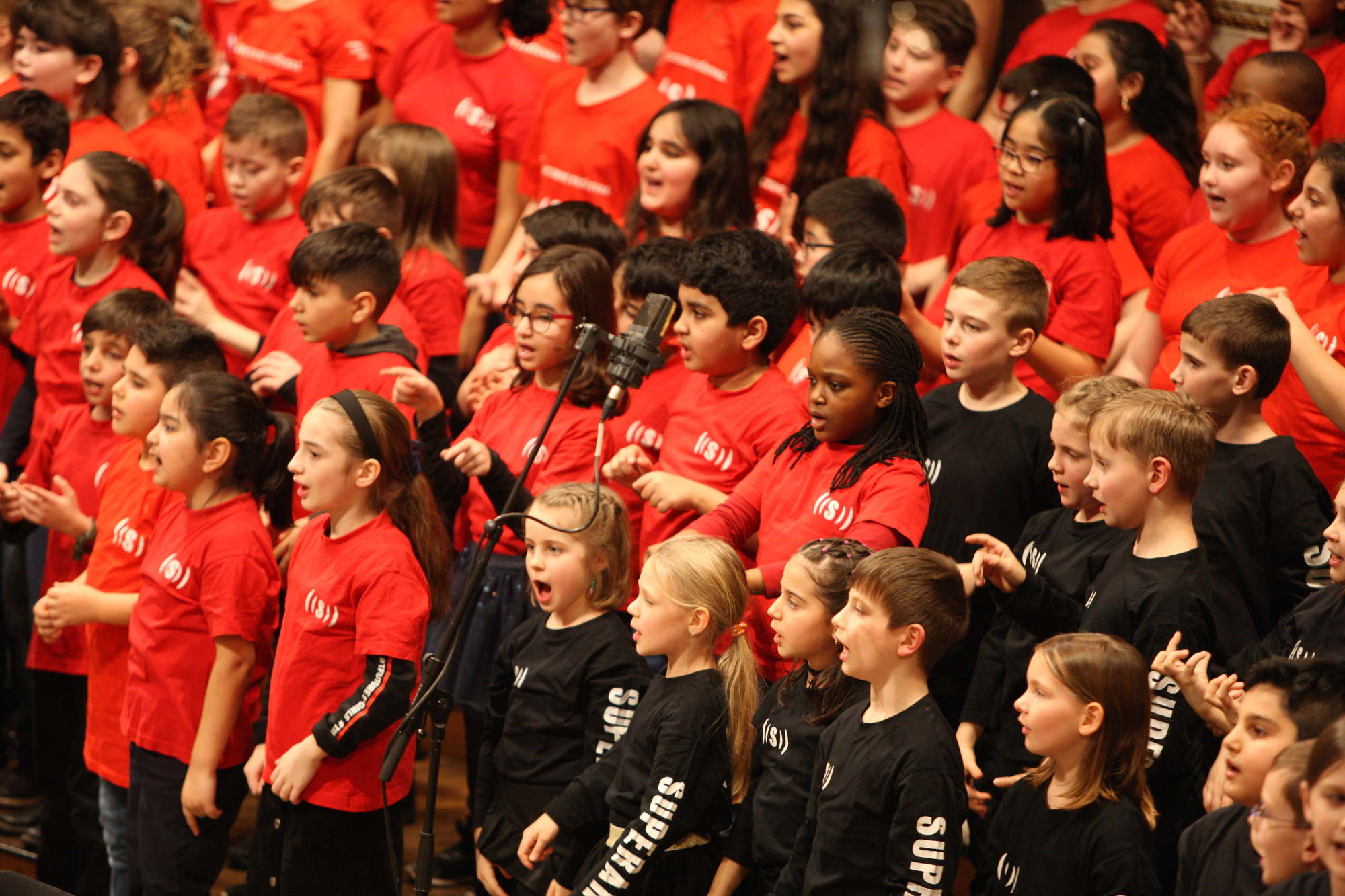
Superar kids have the chance to sing live and share the stage with renowned performers. One of these most remarkable performances was in 2015 at the Eurovision stage with Conchita Wurst. The Vienna Boys’ Choir, as a founding partner of Superar, was interested in promoting Superar on such a big stage. The other one was Superar’s performance during the opening event of the West Balkan Summit in Vienna where Superar kids from Croatia, Serbia and Bosnia Herzegovina all sang and shared the stage. “Having these kinds of events is part of Superar’s work as we want the kids to perform in many different contexts, in their schools, in the City Hall, in the Konzerthaus, in other countries”.
More recently, Superar’s most important event was in the City Hall Square to open the summertime season of cultural events after one year of the pandemic. Together with the Radio Symphony Orchestra and international performers, under the baton of Marin Alsop, Superar’s kids performed in the last movement of Beethoven’s 9th Symphony. They hadn’t had a chance to rehearse live during the year, but could finally do it in the three weeks prior to the concert.
Get involved! You can follow and participate in Superar’s events. Chek out the Superar’s Calendar. There are different ways to support Superar from donations, helping renting an instrument to becoming a corporate partner.
Interview by Jorge Mosquera.
